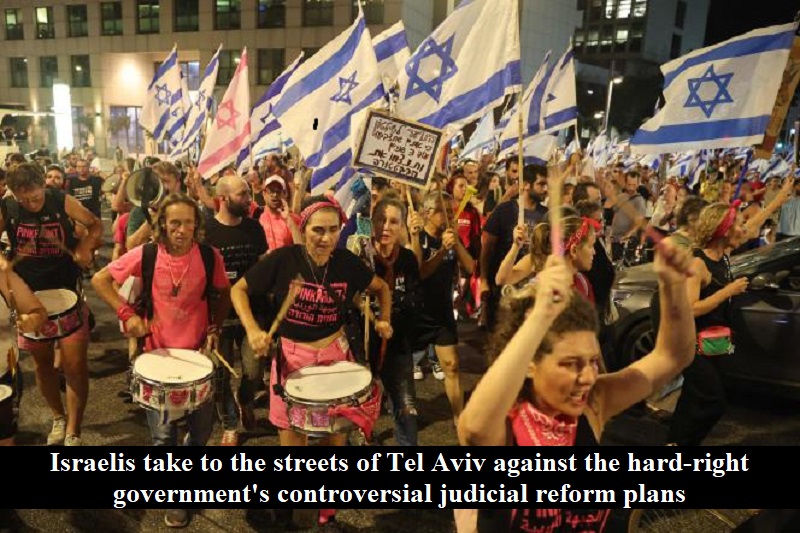
In the latest protest against the hard-right government’s controversial plans for judicial reform, hundreds of thousands of Israelis gathered in Tel Aviv on Saturday, expressing concerns about the potential threat to democracy.
Since the government unveiled its reform package in January, thousands of Israelis have participated in weekly protests, making this movement the largest demonstration in Israel’s history. Although the protests have taken place in various cities, Tel Aviv has been the main epicenter. Demonstrators have consistently marched on Saturdays, opposing Prime Minister Benjamin Netanyahu’s government.
Chants of “Democracy, democracy” echoed through the streets as the protesters marched. Many expressed their determination to continue the demonstrations until the situation improves. A protester, Ben Peleg, emphasized the need to maintain pressure through street protests to potentially halt the changes, even though one significant aspect of the judiciary overhaul has already been passed a few weeks ago.
Last month, the Israeli parliament voted to restrict the “reasonableness” law, which limits the Supreme Court’s ability to review certain government decisions. Critics are concerned that this move could pave the way for a more authoritarian government. The United States, an ally of Israel, has expressed disappointment and raised concerns about the political turmoil caused by this reform.
Netanyahu has defended the move, describing it as a “necessary democratic step” that empowers the elected government to align policies with the majority of citizens. However, opponents argue that these changes could weaken checks and balances on the Israeli executive, potentially leading to an authoritarian government.
The judicial reform package has faced criticism not only from within Israel but also from the United States, which underscores the importance of enduring democratic principles and broad consensus. The bill seeks to limit the Supreme Court’s authority to invalidate government decisions that judges consider “unreasonable.” Efforts to find a compromise between the government and the opposition, mediated by President Isaac Herzog, failed, leading to a growing political crisis.

Post Your Comments